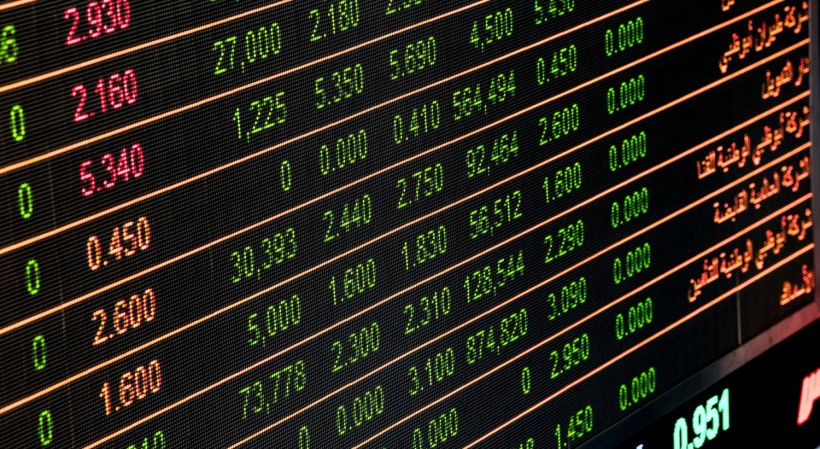In some ways, investing in the stock market is a scientific endeavor. You have to understand the variables, analyze the data, and review the results of your experiments if you want to see a better return.
Increasingly, data science has played a role in how individuals make decisions and how organizations conduct themselves. Before launching a marketing campaign, companies want to know who their target demographics are and how they think. Before innovating or improving a new product, we use data science to understand what people need and optimize the product to perfection.
Data science is being heavily used in stock investing and stock market tracking as well. Stock data API can feed data in real time to any app or web service, whether you're just trying to track the performance of a specific asset or you are trying to figure out whether recent volatility is a sign of things to come.
But could better data science allow us to predict the stock market more accurately on a higher level?
Why We Can't Predict the Stock Market
Unfortunately, better data science will never be able to accurately predict the stock market. These are just a few of the reasons why that's the case:
- The future is unpredictable. Black Swan theory, developed by Nassim Nicholas Taleb, holds that high-profile, rare, and unexpected events are more common than we think - and that the human brain has an annoying tendency to explain these events away through hindsight bias, leaving us vulnerable to new Black Swan events in the future.
A perfect example of this is the 2008 housing market crash and resulting economic recession. No economic experts at the time, aside from a handful of rogues, were predicting that derivatives trading and other factors were leading us to a major market collapse.
But with the benefit of hindsight, the crash seems like it was inevitable. Now that it's happened, we're on the lookout for troubling signals in the housing market and shady economic practices that could lead us to a similar event. But this is somewhat useless, as the next Black Swan event related to the economy will, by definition, be impossible to foresee in advance.
This is just one example of the future being unpredictable. When we invest in companies in the stock market, we often think about the long-term future, but on some level, this is an exercise in futility. In 10 years, are you confident the economy is going to function exactly as it does today? What about in 20 years? 30? In 10 years, the company you're investing in could have totally new leadership, an unveiled scandal, and difficulty dealing with major demographic shifts that nobody could have predicted. We simply don't know what the future holds, and since so many different variables influence stock prices and the economy at large, this is functionally impossible for data science to predict.
- Not all present data is available. On top of that, we don't have access to all the present data we would need to make perfect investing decisions. We may understand a company's growth model, its current leadership, its vision and mission statement, its recent profit and loss statements, and dozens of other financial variables associated with it. But we don't really know what goes on behind closed doors. Publicly traded companies are obligated to disclose certain pieces of information to the general public, but that doesn't stop them from withholding pieces of information the public. We can't know everything that happens in a given organization.
- Information is democratized. Another reason we can't really predict the stock market is the fact that information is now democratized. When you hear that a company has recently announced a new product and hype for that product is skyrocketing, you may want to invest in the company because you predict good things in the future.
But everyone else around you noticed this information and is using it the same way you are; in fact, if you're in an average position in the information stream, countless people will have you used this information to invest before you. That means the stock price is already probably inflated, and you'll push it even higher with your entry. Data science can only predict these types of changes using rational, isolated models; currently, it crumbles when investors demonstrate this type of sophisticated "flocking" behavior.
- Even the best experts are often wrong. Finally, keep in mind that while economics is an important science, some of our best economists are wrong with all their predictions. No matter how much grounding you have in facts, data, and logic, the market may end up surprising you. If our most powerful, experienced, foremost experts on the subject can't predict what's going to happen next in the stock market, what hope do data scientists have?
Why Data Is Still Valuable
This entire article may make you feel pessimistic about the future of data science as applied to the stock market, but data is still incredibly valuable. If you want to keep pace with your peers and minimize losses, you need to know as much as possible about what's going on and what could happen in the future - even if you can't predict everything. And at the very least, you'll need data streams to understand how your portfolio is performing.
* This is a contributed article and this content does not necessarily represent the views of sciencetimes.com





![Earth's Quasi-Moon Kamo‘oalewa Could Originate From Lunar Surface Not Asteroid Belt [Study]](https://1721181113.rsc.cdn77.org/data/thumbs/full/53275/89/56/50/40/earths-quasi-moon-kamo-oalewa-could-originate-from-lunar-surface-not-asteroid-belt-study.png)









